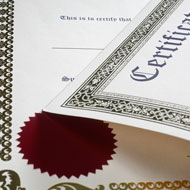
VN Council to discuss adding qualifications at level four and above to the register - a move which may anger vocationally trained nurses.
Just a few months after the RCVS Council made a u-turn on its controversial decision to remove vets' post-nominals from the register, the Veterinary Nursing Council is set to consider adding more post-nominals to the register for nurses.
At the VN Council meeting next Tuesday (February 3), members will be asked to decide whether or not to display a greater number of post-nominals on the register for nurses and Find a Vet. Currently, only RVN and DipAVN are included in the register of veterinary nurses.
Should they decide to list additional post-nominals, council members will also choose the criteria and mechanism for deciding which post-nominals can be approved.
The move comes shortly after considerable backlash from the profession about the RCVS Council's decision to remove post-nominals from the register of veterinary surgeons (except the registrable degree and MRCVS/FRCVS). The news, which was agreed at the June 2012 RCVS Council meeting, prompted an online petition which received nearly 1,700 signatures.
At its November 2014 meeting, the council agreed to reverse its decision and accept a rationalised list of post-nominals.
A paper put forward by Julie Dugmore, RCVS head of veterinary nursing, presents the options for displaying post-nominals in addition to RVN and DipAVN for veterinary nurses.
It is proposed that only qualifications at level four or above, worth 60 UK credits, should be accepted onto the register, a move VERY likely to anger vocationally trained veterinary nurses and trigger another petition and conflict!
Council members will also have to consider whether related, non-veterinary qualifications should be included - for example those in medicine or agriculture. It is recommended that only qualifications awarded by nationally recognised bodies be accepted - such as universities, chartered bodies authorised to award qualifications and well-established learned societies.
Next week, council will decide whether or not to allow the inclusion of further post-nominals, whether to accept the above criteria, and the mechanism to put in place for reviewing and approving post-nominals.
Responding, Julie Dugmore, the RCVS head of veterinary nursing, told MRCVSonline: "The suggestion in the paper is that only qualifications above and beyond those required for registration should be displayed in order to recognise the additional achievements of VNs who have undertaken more than just the minimum required for registration, which is set at level 3. Having said that, the decision has not yet been made, and we’ll be interested to hear the views of VN Council members."
For further information, view the council meeting papers: http://www.rcvs.org.uk/document-library/vn-council-committee-papers-february-2015/vn-council-committee-papers-feb-2015-unclassified.pdf



 The Animal and Plant Health Agency (APHA) has updated its online reporting service for dead wild birds.
The Animal and Plant Health Agency (APHA) has updated its online reporting service for dead wild birds.